Within the most basic and primitive form of catechesis is the public instruction one is given during the Homily. This form in itself is “instruction” however; one needs a firm foundation within the faith to truly benefit from this form of catechesis. The presbyter could very well confuse those he is actually trying to instruct. Children in particular are most likely to become board and confused without having this information transcended to them at their level of understanding. Many others must have thought or felt the same way due to the vast changes that were forthcoming within catechesis.
As with most theologian giants throughout the ages, most if not all agreed that the catechesis of the time was in drastic need of revamping. Not to the point to disengage themselves or the populace from the dogma, more so it was thought that the average person could receive more in depth or a more cohesiveness towards the process if it were more presentable towards the common person.
Arch-bishop O’Hara was an instrumental member within the United States catechesis process as we know it today. Arch-bishop O’Hara upon his return from World War I felt keenly the neglect of formal religious instruction for children in rural districts. He felt the solution was intimately related to the social and economic improvement of the living standards of the farming population in America. O’Hara was the forefront leader within the United States with the Confraternity movement. Within the Decree on the Better Care and Promotion of Catechetical Instruction from the Holy See, stipulated that the Confraternity of Christian Doctrine shall be set up in every parish before all other organizations. O’Hara felt the catechism must distinguish carefully between the function of proclaiming the message of Christ and explaining it.
It is evident that this movement if far from over. This is not meant to convey that the process in general is “wrong” or not “not working correctly.” What this proposes is that there is always room for change and development within the process of catechesis. The goal is the development of all God’s children.
Christian Education
"Since all Christians have become by rebirth of water and the Holy Spirit a new creature(8) so that they should be called and should be children of God, they have a right to a Christian education. A Christian education does not merely strive for the maturing of a human person as just now described, but has as its principal purpose this goal: that the baptized, while they are gradually introduced the knowledge of the mystery of salvation, become ever more aware of the gift of Faith they have received, and that they learn in addition how to worship God the Father in spirit and truth (cf. John 4:23) especially in liturgical action, and be conformed in their personal lives according to the new man created in justice and holiness of truth (Eph. 4:22-24); also that they develop into perfect manhood, to the mature measure of the fullness of Christ (cf. Eph. 4:13) and strive for the growth of the Mystical Body; moreover, that aware of their calling, they learn not only how to bear witness to the hope that is in them (cf. Peter 3:15) but also how to help in the Christian formation of the world that takes place when natural powers viewed in the full consideration of man redeemed by Christ contribute to the good of the whole society.(9) Wherefore this sacred synod recalls to pastors of souls their most serious obligation to see to it that all the faithful, but especially the youth who are the hope of the Church, enjoy this Christian education."
Gravissimum Educationis
Gravissimum Educationis
Thursday, March 19, 2009
Subscribe to:
Post Comments (Atom)






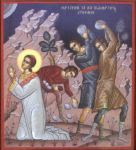







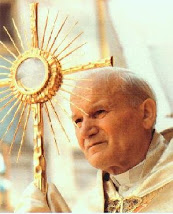











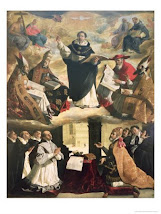
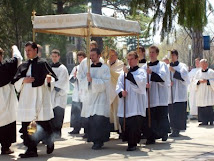

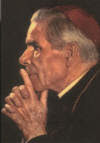


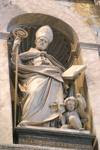



No comments:
Post a Comment